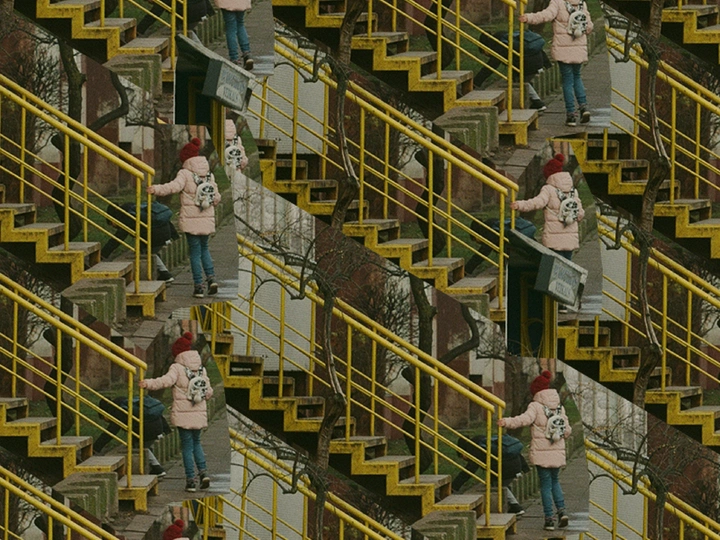Livable micro-districts of Baltics

Greta Samulionyte
Our project team currently comprises two humans with deep roots in Latvia and Lithuania.
Kamilla Kūna, a researcher in urban aesthetics and project manager at ISSP Latvia, a contemporary photography gallery, has international experience in the Netherlands and Finland. Her thesis, "Aesthetics of Boredom in Laumas microdistrict, Liepaja, Latvia," explores the aesthetic of monotony in post-Soviet neighborhoods from a resident-centric perspective, offering a platform for Laumas residents to be acknowledged and heard. Her research includes a photovoice analysis from residents and aims to extend its reach across Latvia and the Baltics, marking only the beginning of her ambitions.
Greta Samulionyte, an architect, urbanist, and curator with experience in Denmark and the Netherlands, is working on her thesis at TU Delft titled "Fostering Trauma Recovery through Citizen Participation: Reshaping Public Space with Trauma-Informed Urban Design in Alytus, Lithuania." Her research investigates the link between collective trauma and urban design, focusing on enhancing mental well-being, trauma recovery, and citizen involvement in Lithuania’s micro-districts. Additionally, Greta is the editor-in-chief of Atlantis Magazine, a student publication that explores urbanism and landscape architecture. She plans to continue blending urbanism, curation, and research post-graduation in June 2024.
Our project evolved from our collective's previous investigations into the dynamics of micro-districts, their public life, and their inhabitants. Motivated by the aim to challenge and reshape the prevalent negative stereotypes surrounding these areas, we are determined to create impactful changes. Given that more than half of the population in the region resides in such districts, it is vital to acknowledge and enhance these crucial yet often overlooked and poorly resourced parts of the urban landscape. Our objective is to empower residents to recognize and utilize their capacity to positively influence their immediate surroundings and change stigmatized views. We plan to achieve this through the production of zines that showcase positive examples and encourage citizens to create livable micro-districts.
Our collective began this journey in February 2024, by pinpointing successful instances of citizen engagement and community development within micro-districts. Our research has since attracted a diverse team of urban planners, artists, filmmakers, and professionals from various disciplines, all driven by a commitment to this cause. As we look to expand our team with a new member from Estonia, we have scheduled a research trip to the Laisnaidee micro-district in Tallinn at the end of August. During this visit, we aim to connect with the creators of a community garden to discuss their achievements and obstacles.
A central component of our initiative is the compilation of real-life success stories that can act as catalysts for community involvement and transformation. Our ambitions extend beyond merely producing a zine; we strive to build a platform that not only motivates residents but also supports those initiators and planners who are dedicated to altering both the perceptions and realities of micro-districts.